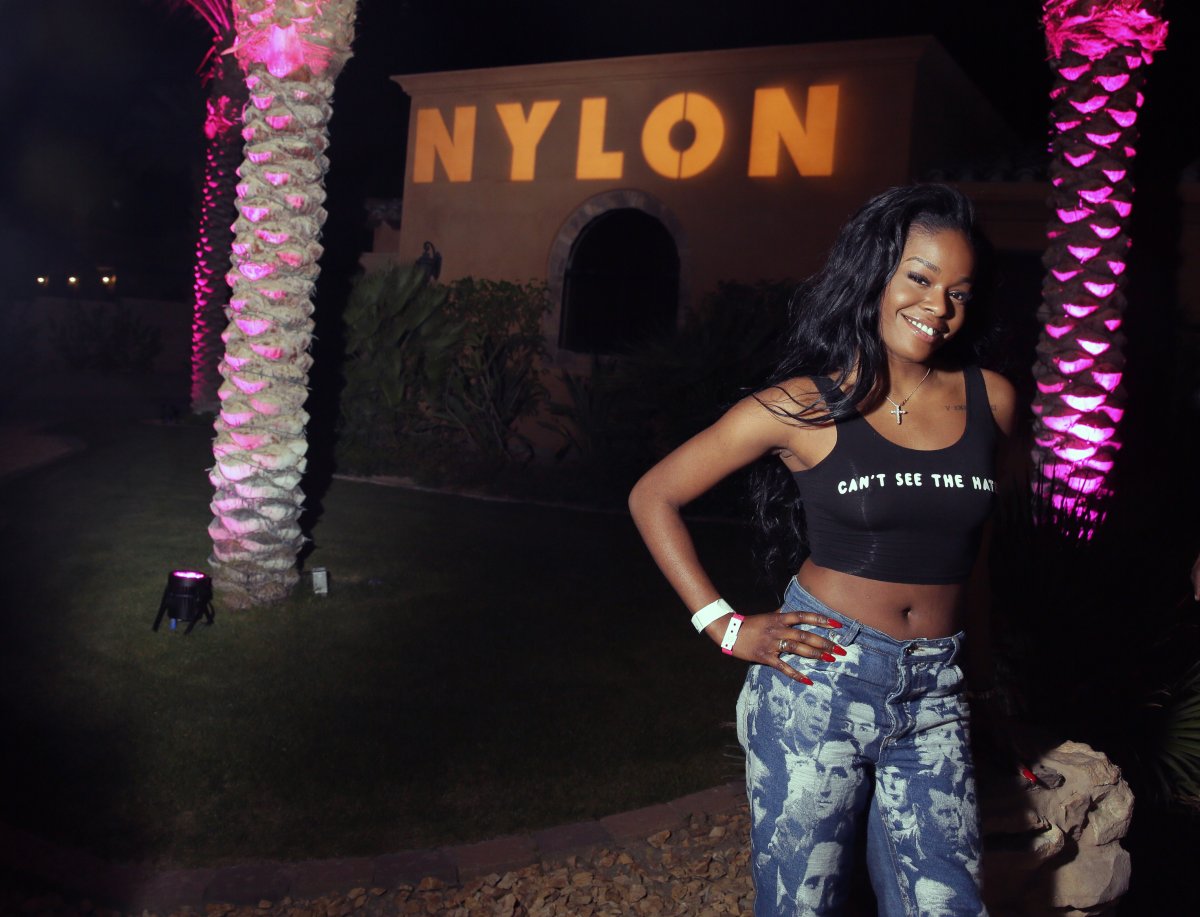It’s often said that beauty is pain, but the recent trend of skin bleaching is truly one of the most dangerous beauty regimens.

Controversial rapper Azealia Banks recently spoke out about lightening her complexion and how much she enjoys using the skin whitening cream Whitenicious by Denica.
After receiving much criticism, the 25-year-old posted a 21-minute rant on Facebook Live, which has been recently removed (but is available on YouTube). In the video, Banks defends skin lightening and describes it as another example of assimilating to white culture, just like “speaking clear English.”
READ MORE: Sarah Palin threatens to sue Azealia Banks over X-rater Twitter Feud
Two weeks ago, Banks revealed that she was working on an article that would detail the difference between skin bleaching, skin lightening, skin brightening and skin whitening.
“Nobody was upset when I was wearing 30-inch weaves and tearing out my edges. What’s the difference from [sic] getting a nose job and changing your skin colour?” the Harlem rapper asks in her video.
Banks goes on to say that she considers skin lightening procedures the same as getting a chemical peel, or applying acne medication.
But what, exactly, is skin lightening? And is it harmful to your skin?
Global Industry Analysts reported the skin-lightening industry was worth $10 billion in 2015. Skin bleaching or whitening is a permanent alteration, and has become a common phenomenon in many countries.
Unfortunately, many people ignore the health warnings associated with using skin-bleaching products. Many chemicals have been shown to be effective in skin whitening, while some have proven to be toxic, adding to the controversy surrounding their use.
READ MORE: ‘Selfie elbow’ is now a very real health concern
Skin-brightening products are generally designed to improve a dull skin complexion through exfoliation. Exfoliation will not make your skin “whiter,” but it can make your skin look fresh, toned and smooth. It adds a more radiant, healthy glow to your skin so that it will naturally appear brighter. Brightening creams usually contain exfoliants combined with antioxidants and natural extracts that will revitalize the skin. Ingredients can include beta hydroxyl salicylic acid, Vitamins A and E, papaya, and rice bran.
Some brightening creams will also contain ingredients designed to lighten the skin tone. The ingredients work to prevent the production of melanin and improve the appearances of sun damaged skin, acne scars, freckles or hyper-pigmentation.
READ MORE: Why we all lie to get out of socializing, and how to do it right
Skin-whitening creams are more specifically designed to whiten or bleach the skin. Bleaching agents like hydroquinine are added to the creams to whiten the skin; hydroquinine slows the production of melanin and is also the chemical used to develop photos. There can be serious side effects and complications associated with the long-term use of this synthetic lightener, such as inflammation, skin irritation, or burning and itchy skin.
Many skin-whitening products contain ingredients that have been banned in most African countries due to the dangerous effects they can have on health. Extreme side effects of skin bleaching can range from scabs to skin cancer to liver damage. There are a number of natural skin whiteners which can be just as effective as hyroquinine — it’s better to find a product that includes natural ingredients such as kojic acid, bearberry extract, mulberry extract or emblica.
In 2011, the World Health Organization reported that 77 per cent of women in Nigeria used skin-lightening products regularly, as did 40 per cent of women in China, Malaysia, the Philippines, and the Republic of Korea. BBC News reported in 2010 that the skin-whitening industry in India was expanding at a rate of 18 per cent each year and valued at $432 million.
READ MORE: Sarah Silverman ‘almost dies’ after bout of severe illness
Rapper Azealia Banks supports a woman’s choice to alter their complexion, but she warns that the world of skin bleaching is “a very deep, dark world” and that women should be cautious about using the right products.
She also addresses women of other races who choose to modify their own appearance in different ways, like a Caucasian woman wanting to get a tan. This is the result of what she calls “cross-cultural ideas of beauty.”
Rapper Lil’ Kim has also been accused of altering her skin tone after posting a photo to Instagram weeks ago. The hashtag #LilKimSoWhite surfaced as a result.
https://www.instagram.com/p/BEmWuB2vsVu/
She has called herself “Black Barbie” for most of her career, and is commonly seen wearing blue eye contacts and blond wigs.
“Guys always cheated on me with women who were European-looking. You know, the long-hair type. Really beautiful women that left me thinking, ‘How I can I compete with that?’ Being a regular black girl wasn’t good enough,” Kim said in an interview.
It’s important to note that skin bleaching is not a cosmetic augmentation someone can do temporarily. If you opt to use any creams or products, you should make sure your skin is being monitored regularly by a licensed skin professional or dermatologist.
Always be on the lookout for any strange changes in your skin during the process, like peeling and redness.




Comments